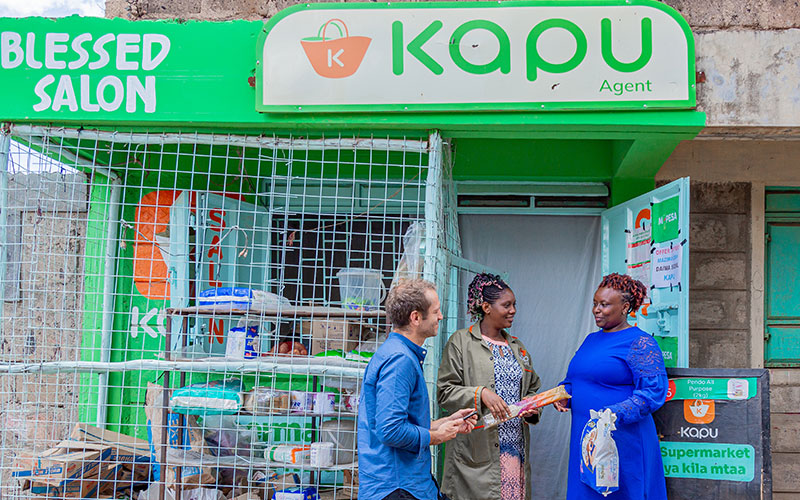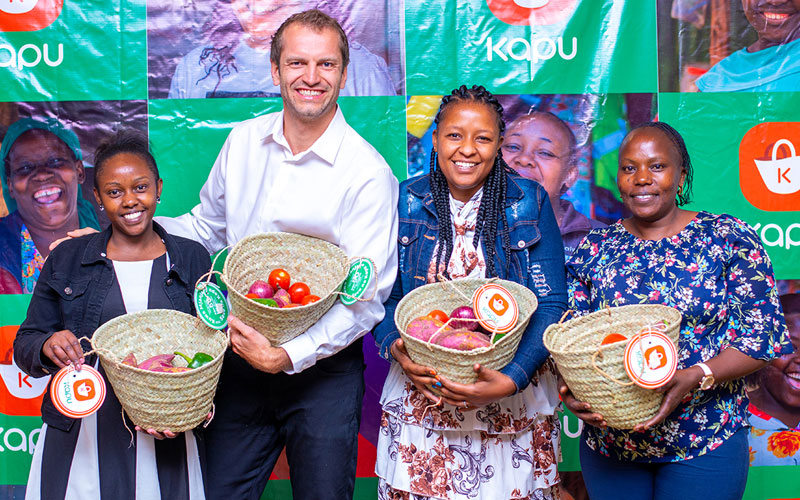NAIROBI, Kenya, Nov 12 – Kenyan pockets have been squeezed hard by high inflation over the last few months.
Data from the Kenya National Bureau of Statistics (KNBS), for example, showed that inflation in Kenya rose slightly to 6.9 percent in October from 6.8 percent a month earlier.
The high cost of goods and services has forced thousands of Kenyans to look for alternative, cheaper products.
With Kapu, an online business-to-consumer (B2C) e-commerce platform, individuals and firms can buy goods at affordable rates.
By using the startup, a buyer saves 10 percent on grocery purchases compared to traditional e-commerce sites as well as kiosks and supermarkets.
So, how does Kapu keep prices low?
The startup leverages economies of scale by sourcing products directly from manufacturers to offer ultra-cheap products.
Its 1,000 products, such as oil, sugar, flour, and toiletries, among others, also feature promotions such as loyalty points and capital points.
“Consumers in Kenya spend 40% of their household income on food. To put that in perspective, consumers in America spend 6% of their income on food. That’s a huge problem for society, right?,” the company’s founder, Sam Chappatte, says.
“If you add rent, you add school fees, you add some transport, you add data, there’s nothing left. Right? And that’s what makes life difficult for people,” he added.
It was for the above reasons that the platform was started to help consumers on the African continent save.

Chappatte founded the digital marketplace.
He is joined by founding team, including Cyrus Onyiego (Chief Operation Officer) and Meera Dhanani (Chief Marketing Officer).
Together, they serve approximately 150,000 households in Nairobi and its environs, with plans for expansion.
It also works with 6,000 agents in Nairobi who earn commissions. They include mama mbogas, salonists, and individuals such as stay-at-home moms and students.
By working with the firm, they earn 20 percent in additional income.
“Agents earn a commission based on whether they place orders for customers, so they help customers place orders, or they act as pickup stations.”

Likewise, the company has employed 35 Kenyans directly and about 150 indirectly as drivers, agents, and salespeople.
While customers can make orders directly on the app or through agents, Kapu also accepts WhatsApp orders.
Besides helping shoppers, the platform has also changed the lives of many of its agents, and one of them is Karen Njeri.
Before, Njeri worked at a braiding shop in Githurai, Nairobi County.
An agent of Kapu who visited the saloon first introduced her to the business.
“This is my second year working with Kapu,” Njeri says.
However, she started small.
While Njeri began with one customer per day, she now serves more than 10 every day.
She says Kapu pays her a good commission.
“When I place orders, they pay me. To me, it has helped me a lot.”

Clients also pay for goods when they arrive, Njeri concludes.




